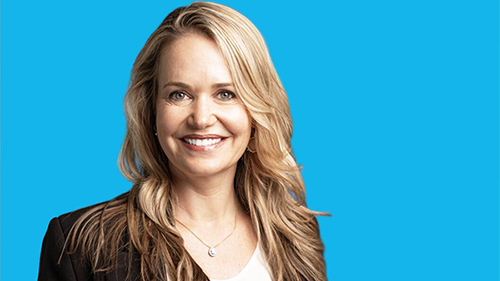How Xero Supports Future Growth With Innovation



In a recent webinar launching the Salesforce State of Marketing Report, Xero Chief Customer Officer Rachael Powell shared how Xero’s marketing and customer experience functions have innovated in communications, support and product to help customers while strengthening Xero’s ability to weather the COVID crisis and prepare for post-COVID work.
In a recent webinar launching the Salesforce State of Marketing Report, Xero Chief Customer Officer Rachael Powell shared how Xero’s marketing and customer experience functions have innovated in communications, support and product to help customers while strengthening Xero’s ability to weather the COVID crisis and prepare for post-COVID work.
We’re seeing more marketing leaders take responsibility for customer experience across their organisations each year – this year 79% of respondents to the State of Marketing research said they lead CX initiatives, up from 45% in 2018.
Here, Powell shares practical lessons marketing leaders with a customer experience focus can take from Xero’s innovative, customer-centred COVID journey.
Even while managing a crisis, businesses need to support future growth with marketing that focuses on building business. When the crisis is affecting customers and the community as well as the business, it’s more important than ever for that marketing to be relevant, empathetic and helpful – for it to play a role in a valued end-to-end customer experience built around customer needs.
Collaboration is crucial
When COVID hit, Xero’s first priority was to look after its people and ensure everybody was safe and effectively working from home. We then promptly switched our focus to our customers, pulling together a cross-collaborative team representing all areas of the customer journey. We could see that 75% of our customers were affected by the COVID crisis and 20% were in decline. Some had gone into hibernation, others had pivoted. With data in hand, we focused on what we could do to get behind small businesses and support them as quickly as possible.
Collaboration with product teams, education teams, marketing teams and with finance is crucial – it must be part of a complete end-to-end customer strategy. What’s often missing, in even well-developed teams, is this collaboration with finance – you need to plan iteratively with finance and product managers.
Resources to support customers
We set up the Business Continuity Hub, a repository of resources that helped customers navigate large volumes of information from the government and media about assistance programs in Australia and New Zealand. Using the data in our platform, we swiftly provided customers with the information they needed to qualify and apply for payments to keep them afloat. We also shared tools, tips and information on how to build resilient teams, support wellbeing activities and successfully move to remote working.
This approach is how we focus as a business – we strive to understand our customers’ problems and share our learnings to help them find solutions.
Build digital communities
With that shift to remote working for many businesses, we created two-way dialogue with some of our customers to find out how we could best support bookkeepers and accountants to support small businesses. We also created online communities that could help each other and launched ‘Xero Hour’ to facilitate conversations among peers on topics of interest.
Sharing stories of success, particularly focusing on how customers had achieved that success, built positivity and momentum as well as providing insights and inspiration. We built trust and a deeper relationship with our partners and fostered a community of people facing similar challenges to learn from each other.
We also turned quickly to product innovation, and where we could iterate to meet customers’ new and changing needs. New initiatives such as cash forecasting, tracking and monitoring tools supported small businesses themselves.
Finally, we helped inform government recommendations using Xero’s Small Business Insights (XSBI) to generate specialised metrics from our subscriber base using aggregated and anonymised data. This showed the impact on small businesses across three key regions – Australia, New Zealand and the UK.
Of course our teams were also managing everything that comes with working and collaborating remotely while delivering all of this innovation for our customers and community. A vital part of supporting our teams was to focus on activities and outcomes and empower them to innovate on how best to achieve their objectives.
Personalised, proactive help
We have seen an evolution from using machine learning to understand customer behaviour and activity in a digital and online environment, to more of an omnichannel approach, looking at behaviour and needs holistically, anticipating future needs and bringing AI to the table.
This helped us talk to customers in an empathetic, personalised way en masse, and ensure communication was relevant, personalised, timely and contributing to customer success. We want to anticipate what customers might need using AI and machine learning, and deliver it to them before they even know they need it.
With the current acceleration to digital platforms, data, machine learning and AI are going to be fundamental even faster than we expected – our customers need to equally focus on running the business today and on changing the business to deliver results tomorrow.
We’re all in this very uncertain and ambiguous environment, but one thing we can bet confidently on is that this acceleration to digital platforms will take us, finally, beyond the idea of the ‘transformation project’. We’re in an environment of continuous evolution, not revolution, and we have to look to continuously transform and innovate.
Rachael Powell is Chief Customer Officer at Xero.




















